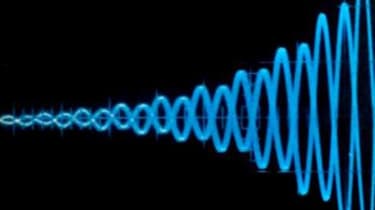
The chilling effect of “kraftwerk I/II” on sound sampling
Using even a two-second sound sample can infringe the related rights of the phonogram producer. Like the seven-differences myth 2 in the field of design, the rumor in the music world has been that a six-second sample is permitted. If it was not already clear that this is not the case, the German Federal Court of Justice, the Bundesgerichtshof, recently sent the six-second rumor off to the land of fairy tales. In its two rulings in “Metall auf Metall I/II”” (the cases are also known as “Kraftwerk I/II”) the German Federal Court of Justice clearly stated that any take-over of any sound fragment recorded in a phonogram - however small - can infringe the related rights of the phonogram producer. That means that the phonogram producer has what amounts to an absolute right to its sound recording and its investment in it enjoys maximum protection. Good news for the phonogram producers, bad news for users of sound samples. There has already been great to-do about sound sampling in the international music world. Here is an overview.
To sample or not to sample
Sound sampling is a special way of using music that takes and repurposes often small snippets of existing musical works and/or music recordings, other sounds, and/or voices in new music productions. The development of the technology has had great influence on the nature and extent of sound sampling. Where the equipment needed to sample was quite expensive well into the 1980s, newhardware and software has gradually appeared on the market that has made digital sound sampling quite a bit cheaper and easier. Today it is possible to sample from home - as they say - with one push of a button. The use of sound samples in new music productions has consequently increased, exponentially.
The reasons3 to use a sound sample vary widely. One obvious reason is to derive commercial benefit from the popularity of another’s music production. Other, perhaps less obvious, reasons for the use or reuse of fragments of music productions can include making a musical tribute to a particular artist, the parody of existing music productions, the up-dating of music productions, the artistic modification of fragments of music productions, combining specific samples together into new music productions, and to lend a new music production an aura of authenticity with the aid of fragments of original music productions.
Read the article English article here!
Lees het Nederlandse artikel hier!
more insights
Een mooie overwinning voor het nachtleven bij onze oosterburen in Berlijn!
Afgelopen week draaide de Berlijnse bestuursrechter de beperking van de openingstijden van een restaurant gelegen in Prenzlauer-Berg, een bekende uitgaansbuurt in Berlijn, door de gemeente terug. De rechtbank was hierbij van oordeel dat de gemeente te weinig acht had geslagen op de meerwaarde van de organische ontwikkeling van een cultureel belangrijke uitgangsbuurt in de stad, en dat een dergelijke uitgaansbuurt speciale bescherming verdient. Hoe zien wij dat terug in Nederland? Een casus zoals deze in Berlijn is voor ons als advocaten en voorvechters voor festivals en nachtcultuur in Amsterdam en de rest van Nederland niet onbekend. als tegen verleende evenementenvergunningen bezwaar wordt gemaakt gaat het bijna altijd om bezwaren van één of enkele omwonende(n), die ondanks maatwerk en tegemoetkomingen door organisatoren vaak jaren achtereen blijven volharden in juridische procedures. De weigering van de gemeente Amsterdam om een vergunning te verlenen voor het iconische Pride event op het Amstelveld vorig jaar vanwege “excessieve overlast” die enkele omwonenden zouden ervaren staat hierbij nog vers in ons geheugen. Juist ook omdat het evenement naast enkele klagers een groot draagvlak heeft onder alle direct omwonenden van het Amstelveld. Ondertussen dreigt het uitgaansleven ook aan de voorkant steeds meer aan banden te worden gelegd, bijvoorbeeld door voorgenomen wijzigingen in het Evenementenbeleid Amsterdam. Een van de voorgenomen wijzigingen ziet op het vervroegen van de eindtijd voor evenementen op zondag: van 23.00 naar 22.00 uur. Onterecht en ongefundeerd als je het ons vraagt. Wij zijn van mening dat de gemeente bij haar keuzes niet steeds opnieuw de kaasschaaf zou moeten hanteren. De uitspraak van de Duitse rechter laat zien dat aan het uitgaansleven en de nachtcultuur ook een zwaar en speciaal belang mag worden toegekend, waar het belang van een enkele klager onder omstandigheden voor moet wijken. Dat is wat ons betreft in Nederland niet anders. Overheden mogen gaan staan voor het rijke nachtleven en festivallandschap dat ons land kenmerkt. Wij vinden dat in Nederland vaak te weinig acht wordt geslagen op de culturele en artistieke meerwaarde van het nachtleven en de festivals, zeker ook waar het grote steden betreft. Het gaat vaak om organische ontwikkelingen, zoals uitgaansbuurten en festivallocaties die soms al decennia gaande zijn en tot culturele ecosystemen zijn uitgegroeid waarin talentopwikkeling op en achter het podium plaats kan vinden. Wij strijden dan ook voor bescherming van de nacht- en festivalcultuur en het doet ons goed om te zien dat wij hierin niet de enige zijn.
11 August 2025
ReadPlus One Legal en Kunstenbond strijden voor eerlijke streaminginkomsten
Vandaag vond de zitting in de rechtszaak tegen Universal plaats, in de rechtbank van Amsterdam. We pleiten in deze rechtszaak voor betere streaming percentages voor artiesten. Het vonnis van de rechter verwachten we eind van de zomer.
08 July 2025
ReadKunstmatige intelligentie roept interessante juridische vragen op: zelflerende machines
Kunstmatige intelligentie oftewel Artificial Intelligence (AI) is nu al niet meer weg te denken. In het afgelopen jaar stond dit technologische fenomeen meer dan eens centraal in de mediaberichtgeving. Of het nu gaat over de duistere kanten van generatieve AI – ‘AI is een nieuw gevaarlijk wapen en vormt een existentiële bedreiging voor de mensheid’ – of de onbegrensde mogelijkheden van de toepassing van deze technologische ‘zelflerende machines’ bij het maken van creaties, AI gaat in onze mensenlevens een steeds belangrijkere rol spelen. In deze bijdrage voor Muziekwereld ga ik in op een aantal juridische aspecten van AI die met name voor de muzieksector van belang kunnen zijn.
01 January 2025
ReadHet verbod op een dansstijl: bubbling op het zomercarnaval
In de aanloop naar het Zomercarnaval in Rotterdam ontstond de nodige commotie over het door de organisatie aangekondigde verbod op de dansstijl- en vorm bubbling. De organisatie van de straatparade verbood de deelnemers aan het Zomercarnaval ‘vulgair te dansen’. Daarbij werd de dansstijl- en vorm bubbling als voorbeeld gegeven.
06 March 2024
Read